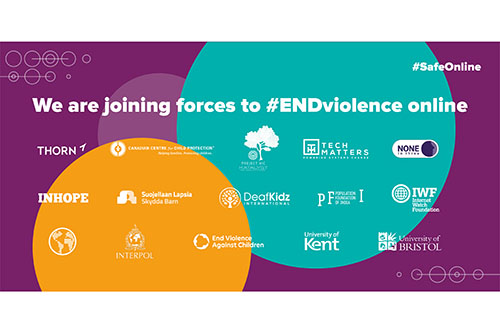Researchers in the Cyber Security Research Group and Visual Information Laboratory at the University of Bristol, together with colleagues at Lancaster University, have developed an approach that combines Artificial Intelligence and Machine Learning to flag new and previously unknown child sexual abuse media automatically. Known as iCOP, this tool is already helping law enforcement to catch and prosecute abusers. The Bristol team has just received funding from the End Violence Against Children Fund to extend this work into South East Asia.
"The rates of online child sexual abuse material in Southeast Asia are growing, and technologies for law enforcement need to keep pace. Our new AI-based tool will provide law enforcement with sophisticated techniques to apprehend perpetrators and, ultimately, safeguarding victims," said Awais Rashid, Professor of Cyber security at the University of Bristol and Director of the newly established National Research Centre on Privacy, Harm Reduction and Adversarial Influence Online, REPHRAIN.
Dr Claudia Peersman is one of the lead researchers of the new project: ‘AI-based advances for law enforcement’s response to online child sexual exploitation and abuse in Southeast Asia’. The project will involve close collaboration with law enforcement in ASEAN (Association of Southeast Asian Nations) countries and wider outreach (advocacy and training) to law enforcement across the region through events and online tutorials.
The solution proposed in this project, will allow law enforcement investigators in South East Asia to automatically:
- detect victims at acute risk;
- assign degrees of importance and urgency to items of evidence in order to assess online child sex offenders’ potential danger to society;
- find useful evidence in a timely manner.
The project will contribute to and draw on the work of REPHRAIN.
An advisory board has been established, chaired by Dr Maggie Brennan (University of Plymouth), and consisting of UN agencies and law enforcement agencies in Europe, Australia and South East Asia, in order to guide the technical objectives and support advocacy, awareness raising and training in the region.
